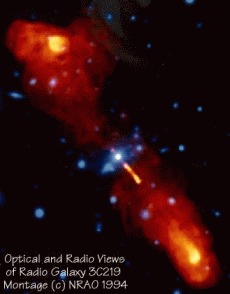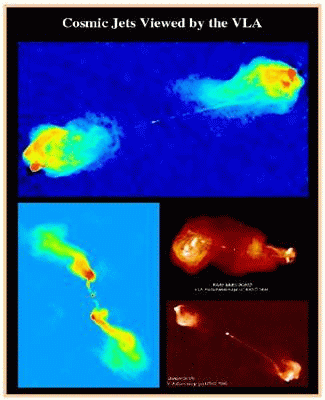Extragalactic radio sources
 Fig. 1: Radio galaxy 3C219 (Credits: NRAO) |
90% of the radio sky is made up of distant elliptical galaxies
This energy, produced at the centre, in the nucleus of the elliptical
galaxy, extends symetrically well beyond the galaxy itself, up to a
distance of hundreds of thousands of
light years
This morphology is quite typical for radio galaxies. |
|
The figure on the right shows other examples of radio emissions in radio galaxies. In all cases we can identify:
These
characteristics are thought to be due to a massive black hole
(approximately 106 solar
masses) present in the galaxy centre |
 Fig. 2: Various examples of radio galaxies (Credits: NRAO). |
|
|
(Extragalactic radio sources- page 1 of 4) | Forward > |
